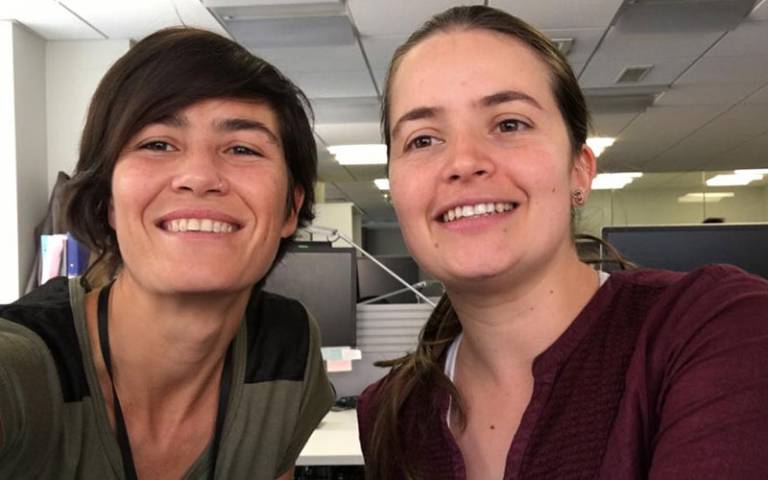Travelling for treatment: supporting children with cancer
Dr Cecilia Vindrola, an applied medical anthropologist in the Department of Targeted Intervention at UCL, has been studying how children access cancer treatment in Argentina

23 September 2021
With a centralised medical system meaning most children will have to travel to the capital Buenos Aires for treatment, families face unique challenges in accessing care.
Supported by funding from UCL Global Engagement, Dr Vindrola entered a collaboration with Universidad de Buenos Aires and Hospital Britanico to study how families access services, the challenges they face and what information they need.
The aim is to inform changes in the delivery of specialised care and the development of support programmes for traveling families.
With multiple papers published and several further grants obtained, the collaboration is going from strength to strength since the academics’ initial meetings and is now expanding into looking at how families travel for treatment in the UK.
Challenges at a challenging time
Most research on paediatric oncology (i.e. cancer treatment for children) looks at the experiences children have in hospital.
Dr Vindrola’s research looks at how the political and economic context influences children’s experiences, as well as the influence of their family experience. Her team collected stories from children receiving treatment at three public hospitals in Buenos Aires.
In Argentina, most children will travel to the capital city for treatment. This presents a variety of challenges for them, and their families, such as:
- Families are split up for months as siblings and other relations stay at home.
- Parents can lose their jobs due to being absent for long periods of time.
- The children miss large parts of their schooling.
- They incur extra costs due to travel and temporary accommodation.
These, not just the experience of the treatment and hospital themselves, have a huge influence on the children’s overall experience.
The cultivation of an international project
Dr Vindrola set up a project with colleagues at Universidad de Buenos Aires:
- Eugenia Brage, a medical anthropologist who has carried out research on internal medical travel and cross-border care in Argentina; and
- Rosa Mertnoff, a clinician interested in addressing inequalities in centralised healthcare models (like the healthcare system in Argentina).
“I felt I could bring in methodological and theoretical expertise in mobility and healthcare, and my colleagues brought contextual information and local connections I did not have,” said Dr Vindrola.
Together they had experience of local fieldwork in Argentina, knowledge of the local healthcare systems, and the research expertise needed for the project.
Global Engagement Funding enabled the collaborators to meet in person to prepare research approaches and papers, work that is more easily done face to face.
“Those initial meetings were vital to get the project off the ground”, explained Dr Vindrola, “now we rely more on Skype and other communications methods, but those first meetings to build relationships were essential.”
With book chapters and papers published and several grants obtained from sources in the UK and Argentina, the project is now expanding to developing screening tools for high-risk chronic patients in the northern areas of Argentina.
Dr Vindrola also has a student in the Comparative Politics BSc programme at UCL working on a related study on medical travel in the UK and is in the process of applying for a National Institute for Health Research (NIHR) grant for a project on medical travel in the UK.
More information
- Dr Cecilia Vindrola academic profile
- UCL Department of Targeted Intervention, UCL
- The Universidad de Buenos Aires
- Vindrola-Padros, C., Brage, E. & Chambers, P. On the road and away from home: a systematic review of the travel experiences of cancer patients and their families. Support Care Cancer (2018) 26: 2973.
- Vindrola-Padros, C. (2019). Critical Ethnographic Perspectives on Medical Travel. Routledge.
- Vindrola-Padros, C. (2021). Care Work and Medical Travel Exploring the Emotional Dimensions of Caring on the Move. Anthropology of Well-Being: Lexington Books.
Image
Caption: Eugenia Brage (left) visiting Cecilia Vindrola (right) in UCL on a GEF-funded trip.
For the latest news about UCL’s international activity, partnerships and opportunities, subscribe to the bimonthly Global Update newsletter.
 Close
Close

